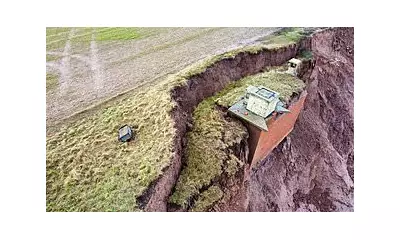
In a landmark ruling that has ignited fierce debate about whistleblower protections, a former Australian Army lawyer has been sentenced for leaking classified documents that exposed alleged war crimes by Australian special forces in Afghanistan.
The Sydney Supreme Court handed David McBride a suspended prison sentence of two years and seven months after he pleaded guilty to stealing and sharing military secrets. The case has become a lightning rod for discussions about government transparency and the treatment of those who expose alleged misconduct.
The Whistleblower's Defence
McBride, who served as a military lawyer in Afghanistan, claimed he acted out of a "duty to the public" when he provided documents to Australian Broadcasting Corporation journalists. The leaked materials formed the basis of the explosive 'Afghan Files' investigation that revealed allegations of unlawful killings by Australian special forces.
Despite his guilty plea, McBride maintained throughout the proceedings that he was compelled to act by what he perceived as a cover-up within the defence establishment. His legal team argued that he should be protected by whistleblower laws, though the court ultimately rejected this defence.
Broader Implications for Military Justice
This sentencing comes amid ongoing scrutiny of Australia's military conduct in Afghanistan. A separate, extensive investigation known as the Brereton Report previously found credible evidence of unlawful killings by Australian soldiers, recommending prosecution of 19 individuals.
The case has raised significant questions about how Western nations handle allegations of wartime misconduct and the balance between national security concerns and public accountability. Human rights organisations have closely monitored the proceedings, expressing concern about the message it sends to potential whistleblowers.
As Australia continues to grapple with the legacy of its longest war, the McBride case represents a pivotal moment in the nation's relationship with military transparency and accountability.





